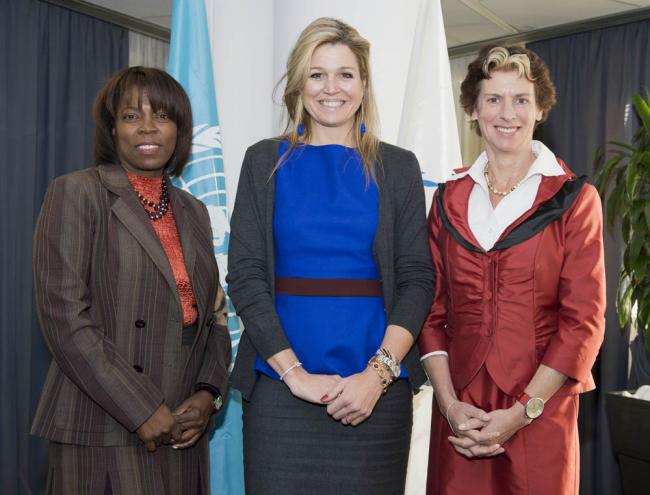
Ethiopia’s agricultural sector has tremendous potential to drive economic growth; access to basic financial services can help smallholder farmers and rural communities harness that potential. The UNSGSA visited the country to promote basic financial inclusion, and support for specialized financial services designed and delivered to rural households, small holder farmers, and agribusinesses to help them make purchases, invest in their fields and businesses, offset risks, and improve local markets. The visit to Ethiopia was a part of a two-country program also involving Tanzania, undertaken by the UNSGSA in concert with the UN’s key food security and agriculture agencies – IFAD, WFP, and FAO. The visits reflect a commitment by the UN to scale up and better coordinate efforts around financial inclusion and agriculture.
The UNSGSA, along with the Executive Director of WFP, the Deputy Director General of IFAD, and senior leadership from FAO discussed Ethiopia’s plans and opportunities to advance financial inclusion as it relates to the development of the agricultural sector with H.E. Prime Minister Hailemariam Desalegn, H.E. Mr. Sofian Ahmed, Minister of Finance, the Deputy Governor of National Bank of Ethiopia, the Minister of Agriculture and the CEO of the Agricultural Transformation Agency. They also held discussions with representatives from ECA, African Union, development partners, private sector, civil society organizations and farmers cooperatives.
In a roundtable designed to address private sector issues facing agriculture based growth in rural areas, the UN leaders engaged with the World Bank Country Director, the State Minister, and CEO’s from Heineken, Africa Juice, Ethiopia Coffee Initiative, and ATA.
The high level UN delegation traveled to the town of Hawassa, located in the Southern Nations, Nationalities, and Peoples Region (SNNP), where they met the President and Vice President of the region, attended a farmers fair, and discussed livelihoods and money management with smallholder farmers. The group also held an interactive exchange with cooperative unions, local microfinance institutions and regional actors on progress in the region and opportunities for scaling up. Here, cooperatives benefit from the World Food Program’s purchasing power to connect markets and raise their income.